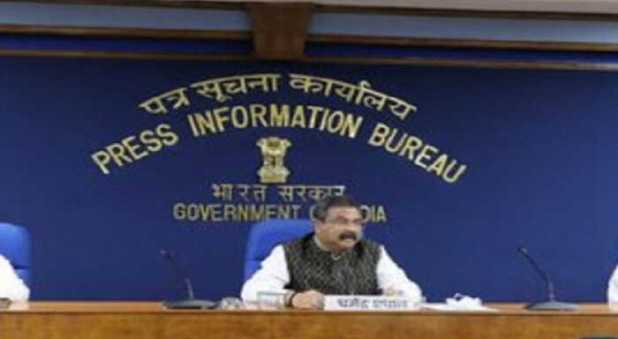
New Delhi, March 30 : Providing cushion from price rise, the on Cabinet on Wednesday raised the Dearness Allowance (DA) for Central government employees and Dearness Relief (DR) for pensioners by three per cent. “The on Cabinet, chaired by Prime Minister Narendra Modi, has given its approval to release an additional installment of Dearness Allowance (DA) to Central Government employees and Dearness Relief (DR) to pensioners with effect from January 1, 2022, representing an increase of three per cent over the existing rate of 31 per cent of Basic Pay/Pension, to compensate for price rise,” an official statement said here. Higher DA means a raise in take-home salary for government employees, as it is calculated as a percentage of basic salary. The combined impact on the exchequer on account of both DA and DR would be Rs 9,544.50 crore per annum. “This will benefit about 47.68 lakh Central Government employees and 68.62 lakh pensioners,” the statement further said. The Central government revises DA and DR twice every year — in January and July, it added. In another major decision, the Cabinet also approved an 808 million dollar (Rs 6,062.45 crore) World Bank-assisted programme on Raising and Accelerating MSME Performance (RAMP). RAMP is a new scheme and would commence in FY 2022-23. “The total outlay for the scheme is Rs 6,062.45 crore or USD 808 million, out of which Rs 3,750 crore or USD 500 million would be a loan from the World Bank and the remaining Rs 2,312.45 crore or USD 308 million would be funded by the Government of India (GoI),” the government statement said. The scheme is aimed at improving access to market and credit, strengthening institutions and governance at the Centre and State, improving Centre-State linkages and partnerships, addressing issues of delayed payments and greening of MSMEs. “RAMP programme will address the generic and Covid related challenges in the MSME sector by way of impact enhancement of existing MSME schemes especially on the competitiveness front. Further, the programme will bolster the inadequately addressed blocks of capacity building, hand-holding, skill development, quality enrichment, technological upgradation, digitization, outreach and marketing promotion, amongst other things,” it added. RAMP was formulated and proposed by the government for strengthening MSMEs in line with the recommendations made by the UK Sinha Committee, KV Kamath Committee and Economic Advisory Council to the Prime Minister (PMEAC). The Cabinet Committee on Economic Affairs (CCEA), chaired by Prime Minister Narendra Modi, also gave its nod to amendment in Mega Power Policy 2009 for provisional mega power projects. Accordingly, time extension (36 months) has been given to identified 10 provisional mega certified projects for furnishing the final Mega Certificates to the Tax authorities. Extension of time period for furnishing final mega certificate will enable developers to competitively bid for future Power Purchase Agreements (PPAs) and get tax exemptions as per Policy terms. The increased liquidity will boost the overall growth of the country and also ensure the revival of various stressed power assets. The time period for 10 provisional mega projects, which are commissioned or partly commissioned for furnishing the final Mega certificates to Tax authorities, has been extended to 156 months instead of 120 months from the date of import. “During this extended period, bids for firm power (combination of intermittent renewable energy, storage and conventional power) will be invited in co-ordination with Ministry of New & Renewable Energy (MNRE) and Solar Energy Corporation of India Limited (SECI) and these Mega projects will be expected to participate in such bids to secure PPAs,” said the official statement on the CCEA decision. NK RJ

